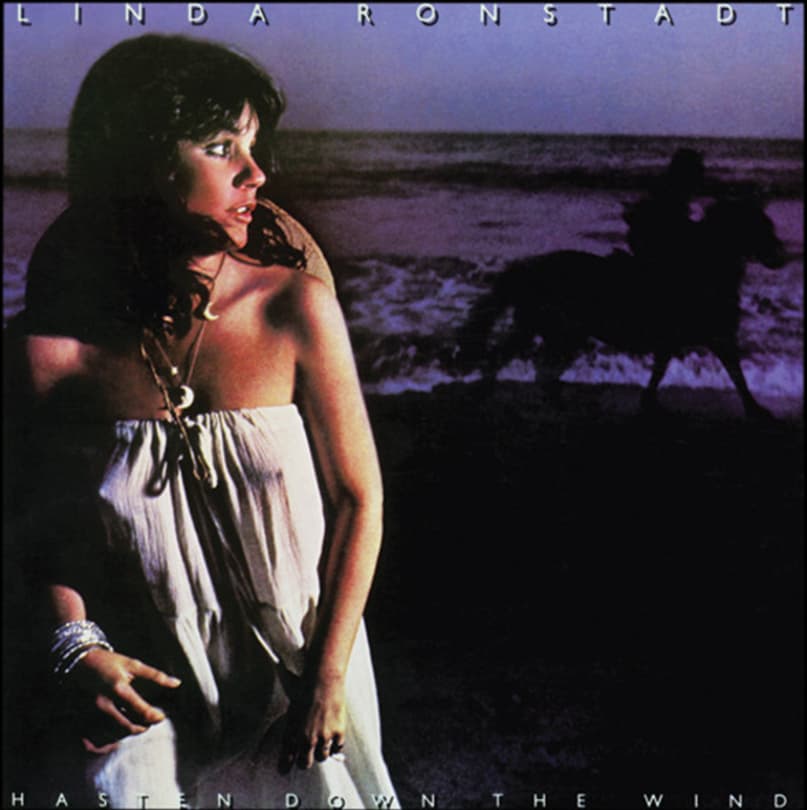
A Melancholy Overture to Love’s Fading Echoes
Ah, there are some songs that, with the very first notes, feel less like a performance and more like a whispered confession—a secret shared between the artist and the listener. Linda Ronstadt’s “Hasten Down the Wind” is one such masterpiece, a poignant and evocative title track from her 1976 album of the same name. It’s a song that speaks to the heart with a quiet ache, a beautiful, somber ballad that perfectly encapsulates the feeling of love slowly, inexorably, slipping away. The album itself, a triumph in Ronstadt’s remarkable career, cemented her status as one of the most versatile and beloved vocalists of her generation. Released in the summer of 1976, Hasten Down the Wind was a commercial powerhouse, becoming her third consecutive album to sell a million copies. The album was not only a commercial success but also a critical one, and for good reason—it represented a new level of maturity and emotional depth in Ronstadt’s artistry.
The story behind this particular song is as beautiful as it is melancholic. Written by the legendary singer-songwriter Warren Zevon, “Hasten Down the Wind” was a gift from Zevon to Ronstadt, an offering of his unique, literary brand of songwriting. At the time, Zevon was a frequent collaborator and friend of the Southern California music scene that Ronstadt helped define. The song’s genesis lies in a time of personal reflection for Zevon, a period when he was grappling with his own life’s complexities. He crafted a lyrical narrative that felt deeply personal, almost like a poem set to music. The title itself is a poetic phrase, an imperative to the wind to carry away the vestiges of a failed romance. It’s an instruction to the unseen forces of nature to bring about an end, a request to accelerate the process of forgetting and moving on. For Ronstadt to choose this as the title track for her album speaks volumes about her own artistic sensibilities and her ability to connect with material that is both intellectually complex and emotionally raw. She wasn’t just singing the words; she was inhabiting them, lending the song a vulnerability that only a truly great artist can.
What makes “Hasten Down the Wind” so enduring is its profound, yet subtly expressed, meaning. It’s not a song of fiery passion or bitter recrimination. Instead, it’s a lament for a love that is dying a slow, gentle death. The lyrics paint a picture of two people who have grown apart, their connection now just a fragile echo of what it once was. The singer is asking their former lover to “hasten down the wind, and leave me lonely,” a powerful plea for a clean, swift departure rather than a lingering, painful one. It’s a request born not of anger, but of a weary resignation. The song resonates deeply with anyone who has experienced the slow, painful dissolution of a relationship—that moment when you know it’s over, but the final, definitive ending has yet to arrive. Ronstadt’s vocal performance is a masterclass in controlled emotion. Her voice, a sublime instrument of breathtaking clarity, glides effortlessly over the melody, imbuing each note with a profound sense of sadness and grace. There are no dramatic crescendos or overwrought ad-libs; just a quiet, sustained delivery that feels like a shared moment of sorrow. It’s this understated power that makes the song so unforgettable, a quiet masterpiece that has etched itself into the hearts of listeners for nearly five decades. It’s a song that, much like a well-worn photograph, transports you back to a moment in time, reminding you of loves lost and the gentle, sad beauty of letting go. For older listeners, it’s more than just a song; it’s a soundtrack to a cherished, bittersweet memory.